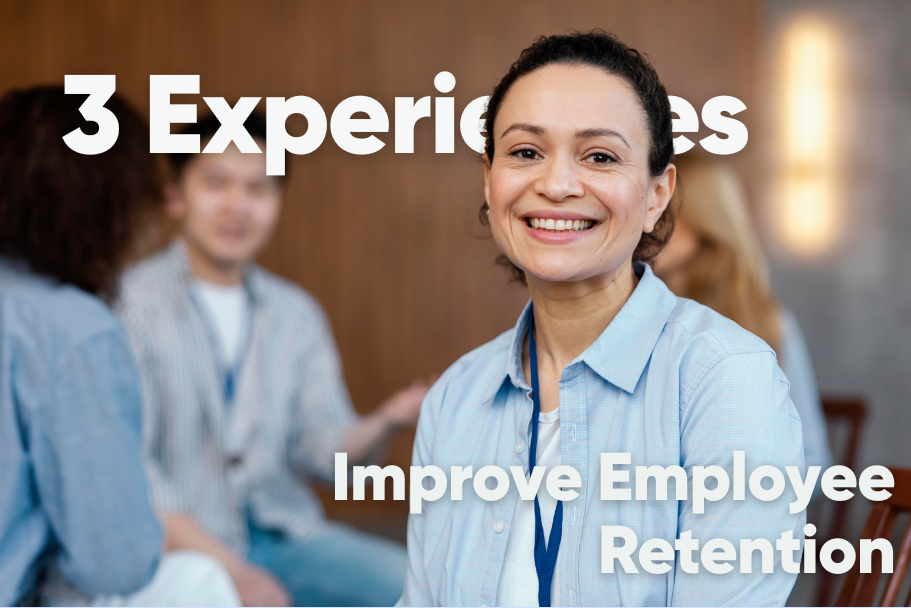
Key Takeaways:
- Trust powers resilience in high-performing cultures: At Great Place To Work® Certified™ companies, 88% of employees say their teams adapt quickly to change and 90% say they’re willing to go the extra mile, far above typical Canadian benchmarks.
- Resilience drives real business outcomes: Employees in high-trust companies are 50% less likely to leave and up to 180% more motivated, according to Deloitte, linking culture directly to retention and performance.
- Practical strategies help organizations build resilience: Clear leadership, skill development, inclusion, and purpose-driven work are key actions companies can take to foster resilience in both people and operations.
- The future belongs to human-centered, tech-enabled cultures: Organizations that combine empathy, adaptability, and smart use of technology are best positioned to thrive in Canada’s evolving economic and workplace landscape.
Across Canada, organizations are navigating an unpredictable economic landscape. Recent labour data shows job growth returning, yet many leaders remain cautious. These conditions highlight one essential quality for long-term success: resilience.
Resilience in the workplace is not simply about withstanding change; it is about adapting, learning, and moving forward with purpose. It reflects how organizations respond to uncertainty, how leaders communicate during challenges, and how employees maintain connection and trust when conditions shift. In today’s economy, resilience has become a core measure of organizational strength.
What Is Resilience and Why It Matters at Work
Resilience refers to an organization’s ability to remain stable and effective during periods of disruption. It involves both individual adaptability and collective agility. For employees, resilience is about having confidence that their workplace supports them through change. For organizations, it means having the cultural foundation to continue making sound decisions and maintaining morale when external pressures arise.
At its core, workplace resilience is built on three things: trust, communication, and purpose. When employees trust their leaders, understand company direction, and see meaning in their work, they respond more constructively to setbacks. At top Great Place To Work® Certified™ companies, 88% of employees agree that “people here quickly adapt to changes needed for our organization’s success,” and 90% say that “people here are willing to give extra to get the job done.” In contrast, those numbers drop to 57% and 56%, respectively, in a typical Canadian workplace (Great Place To Work® 2021 Global Employee Engagement Study). This difference illustrates how resilient cultures show up in day-to-day behaviour, especially when navigating change.
The benefits of cultivating trust-based cultures are well-documented. As Deloitte notes, employees in high-trust companies are significantly more likely to stay, show initiative, and be productive. Their data shows that workers in these environments are 50% less likely to leave, 180% more likely to be motivated, and 140% more likely to take on additional responsibilities. These outcomes are not just cultural—they are economic.
The Canadian Context: A Year of Change & Opportunity
The past year has brought noticeable shifts across Canada’s labour market. While challenges remain, recent signs are encouraging, most notably, the national unemployment rate declined to 6.9% in October (TD Economics). It’s a signal that progress is underway, even if uneven. For organizations and their people, this evolving climate is a reminder of the value of staying adaptable and aligned. Resilience is what helps workplaces turn change into forward movement.
At the same time, artificial intelligence (AI) and automation are changing how many Canadians work. Rather than displacing human potential, AI adoption in Canada presents an opportunity for organizations to rethink how work gets done—making workplaces more efficient and adaptive. The real challenge is ensuring that employees have the skills, confidence, and clarity to grow alongside new technologies.
In this environment, resilience is not only about financial flexibility or operational planning. It is about building cultures that sustain engagement and creativity through every cycle of change. Research from Great Place To Work® shows that employees in high-trust workplaces are more likely to remain motivated and innovative, even when facing uncertainty. These findings reinforce what many leaders already know: economic resilience starts with cultural resilience.
How to Build Resiliency in the Workplace
Developing resilience requires ongoing attention, but it is achievable for organizations of any size or sector. Below are several practical approaches that help build stronger, more adaptable workplaces.
1. Lead with Clarity and Consistency
During uncertain periods, employees look to leadership for stability. Regular, transparent communication about company goals and challenges helps reduce speculation and builds collective understanding. Leaders who model calm decision-making and fairness create a foundation for confidence throughout the organization.
2. Invest in Learning and Skill Development
As industries evolve, continuous learning becomes essential. Providing opportunities for employees to reskill and expand their expertise increases adaptability and engagement. Organizations that treat learning as part of daily work—not a side project—create a workforce prepared for both technological change and economic shifts.
3. Support Well-Being and Inclusion
Resilient workplaces prioritize the well-being of their people. This includes psychological safety, flexible work arrangements, and a culture where employees feel respected and included. A sense of belonging reinforces stability and helps employees manage stress more effectively.
4. Recognize Effort and Encourage Collaboration
Acknowledging progress, even in small ways, builds momentum. Recognition strengthens motivation and encourages employees to support one another. Teams that celebrate shared effort are more likely to sustain high performance under pressure.
5. Align Work with Purpose
Resilience thrives where people understand why their work matters. Clear purpose connects individual contributions to broader business and community outcomes. In resilient organizations, purpose is not just stated—it is experienced in everyday interactions and decisions.
These practices create an environment where adaptability is not a reaction but a habit. They form the structure of a culture that can meet challenges directly and move forward with confidence.
The Future of Work in Canada: Building a Resilient Culture
The future of work will be shaped by flexibility, technology, and human connection. AI will continue to influence how work is organized, but its success depends on how people use it. Workplaces that embrace technology as a complement to human judgment, empathy, and creativity will set the standard for resilience.
In Canada, the organizations leading this change are those that listen to their employees, act on feedback, and measure progress over time. Tools such as the Trust Index™ Employee Feedback Survey help companies identify where their culture supports resilience and where attention is needed. The insights gained from these assessments allow leaders to make data-based decisions that strengthen both engagement and business outcomes.
Resilience also connects directly to the concept of equity. When every employee, regardless of role, identity, or background, feels included and valued, the organization becomes more adaptable and innovative. This “For All™” approach reflects the belief that the best workplaces succeed when everyone has the opportunity to thrive.
Feedback
We value your feedback! Your insights are crucial to helping us create meaningful content. Did the strategies in this article inspire new ways to build resilience in your workplace culture? Are there specific challenges you'd like us to address? Share your suggestions or ideas with us. Together, we can develop resources that truly make a difference. Have feedback? Fill out this form by clicking here.
Get Certified
Want to know how your people feel about your organization’s resilience and adaptability? Get Certified today and learn the answer to this question and gain many more insights along the way.






